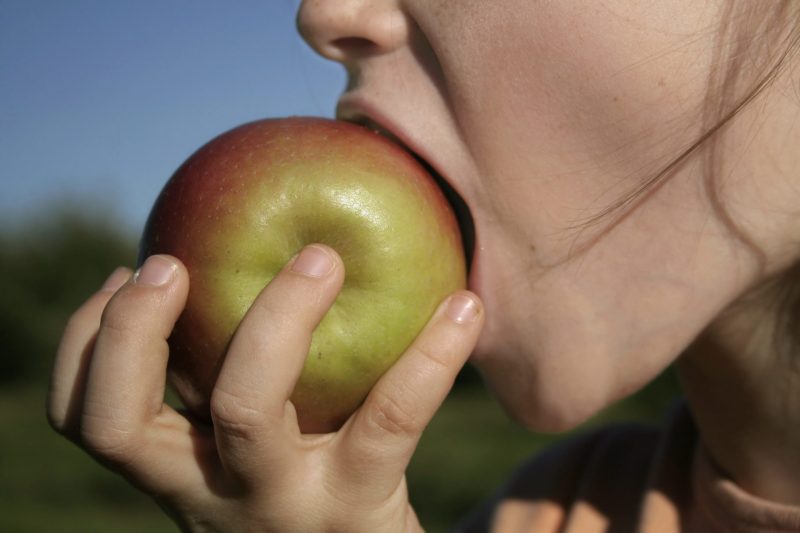Why People Engage In Coal Eating

Why People Engage In Coal Eating
Coal eating, often referred to in a broader context as a type of pica disorder, involves the compulsive consumption of non-food items, specifically coal. While it might seem unusual or even alarming, understanding the underlying motivations and psychological factors behind this behavior is crucial for addressing it effectively. This article will delve into the reasons why individuals may engage in coal eating, the potential health risks associated with the behaviour, and the pathways to treatment.
Coal eating
Coal eating is a form of pica, a disorder characterized by the consumption of non-nutritive substances. Individuals with this condition may eat a variety of items, including dirt, clay, chalk, and in this case, coal. While pica can occur in people of all ages, it is often seen in children and individuals with certain developmental disorders. The specific reasons for coal eating can vary widely from person to person, influenced by psychological, cultural, and environmental factors.
Appeal of coal eating
1) Psychological factors
The primary motivation for coal eating stems from psychological issues. Many individuals who engage in pica disorders, including coal eating, may have underlying mental health conditions. These can include:
-
-
-
- Anxiety disorders: Some individuals may find comfort in the act of eating coal, using it as a coping mechanism for anxiety. The repetitive behavior can provide a sense of relief, albeit temporary.
- Obsessive-compulsive disorder: People with OCD may develop compulsive habits, including the consumption of non-food items, as part of their disorder.
- Depression: Individuals experiencing depression might engage in coal eating as a way to cope with their emotional pain, seeking out sensations that disrupt their negative feelings.
-
-
2) Nutritional deficiencies
Another significant reason for coal eating is the presence of nutritional deficiencies. In some cultures, particularly in developing regions, individuals may consume non-food items like coal due to a lack of essential nutrients in their diets. This behaviour is sometimes seen as a way to compensate for deficiencies in iron, zinc, or other minerals.
-
-
-
- Iron deficiency: Some individuals, particularly pregnant women and young children, may develop cravings for non-food items when they are low in iron. This craving can manifest as an urge to eat substances like coal, which is rich in carbon but has no nutritional value.
- Zinc deficiency: Similar to iron, a lack of zinc can also lead to cravings for unusual items, including coal. Eating coal does not address these deficiencies but can be a misguided attempt to fulfill nutritional needs.
-
-
3) Cultural influences
Cultural practices and beliefs can significantly impact eating behaviors, including coal eating. In some cultures, the consumption of non-food items is normalized or even encouraged. For instance:
-
-
-
- Traditional beliefs: In certain cultures, there may be beliefs surrounding the healing properties of coal or other non-nutritive substances. These beliefs can encourage individuals to consume coal for supposed health benefits.
- Ritualistic practices: In some communities, coal or similar substances may be used in rituals or ceremonies, leading to a normalisation of their consumption.
-
-
4) Sensory experience
For some individuals, the act of eating coal may provide a unique sensory experience that is appealing. The texture, taste, and even the smell of coal can create sensory stimulation that some find pleasurable.
-
-
-
- Oral fixation: Individuals may engage in coal eating as a way to satisfy oral fixations, similar to how some people chew gum or smoke. The act of chewing or sucking on non-food items can become a habit or even an addiction.
- Sensory seeking behaviour: Children, especially those with developmental disorders, may engage in coal eating as a form of sensory seeking behaviour. The texture and sensation of coal may be more stimulating than regular food, leading to repeated consumption.
-
-
Health risks associated with coal eating
While the motivations behind coal eating can vary, the health risks associated with this behavior are significant. Understanding these risks is essential for individuals and their families:
1) Toxicity
Coal, particularly the kind used for industrial purposes, can contain harmful substances, including heavy metals, sulphur, and other toxic chemicals. Consuming coal can lead to serious health issues, such as:
-
-
-
- Heavy metal poisoning: Prolonged consumption of coal can result in the accumulation of heavy metals in the body, leading to poisoning and various health complications.
- Respiratory issues: Inhaling coal dust or particles can cause respiratory problems, including chronic bronchitis and other lung diseases.
-
-
2) Gastrointestinal problems
Eating coal can cause significant gastrointestinal distress. Individuals may experience:
-
-
-
- Constipation: The indigestible nature of coal can lead to blockages in the digestive system, resulting in constipation or other bowel issues.
- Abdominal pain: Consuming non-food items can irritate the gastrointestinal tract, leading to discomfort and pain.
-
-
3) Nutritional Deficiencies
Ironically, while individuals may consume coal in an attempt to address nutritional deficiencies, the practice can exacerbate the problem. Coal does not provide any nutritional value and can lead to:
-
-
-
- Worsening anaemia: For those with iron deficiency, eating coal does not resolve the issue and can lead to further depletion of essential nutrients.
- Impaired nutrient absorption: The consumption of coal can interfere with the body’s ability to absorb necessary vitamins and minerals, leading to more significant health issues over time.
-
-
4) Psychological consequences
Engaging in coal eating can have psychological ramifications, especially if it is tied to deeper mental health issues. These can include:
-
-
-
- Increased anxiety: The shame or stigma associated with eating non-food items can exacerbate feelings of anxiety and depression.
- Social isolation: Individuals who engage in coal eating may find themselves isolated from peers or family, leading to further mental health challenges.
-
-
Recognising coal eating disorder
Identifying coal eating disorder involves recognizing the signs and symptoms associated with the behavior. Here are some key indicators:
1) Compulsive behaviour: Individuals may engage in the repetitive and compulsive consumption of coal, often feeling unable to stop despite recognising the negative consequences.
2) Preoccupation with eating non-food items: A strong fixation on consuming coal or other non-nutritive substances can indicate a problem. This preoccupation may take precedence over regular eating habits.
3) Physical symptoms: Gastrointestinal distress, unexplained weight loss, or symptoms of poisoning may be present in individuals with coal eating disorder.
4) Emotional distress: Feelings of guilt, shame, or anxiety surrounding the behaviour can signify an unhealthy relationship with food and eating.
Seeking help for coal eating disorder
If you or someone you know is struggling with coal eating or any related eating disorder, it’s essential to seek professional help. Here are steps to consider:
1) Consult a healthcare professional: A healthcare provider can conduct a thorough assessment to determine the underlying causes of coal eating and recommend appropriate treatment options.
2) Nutrition counselling: Working with a registered dietitian can help individuals understand balanced nutrition and the importance of consuming nutrient-rich foods. This guidance can assist in breaking the cycle of coal eating.
3) Mental health support: Therapy or counselling can be beneficial for addressing the psychological aspects of coal eating. Cognitive-behavioural therapy is particularly effective in helping individuals develop healthier thought patterns and behaviours.
4) Support groups: Joining a support group for individuals with eating disorders can provide a sense of community and understanding. Sharing experiences with others can help individuals feel less isolated in their struggles.
Motivations vary
Coal eating is a complex behavior that can stem from various psychological, cultural, and nutritional factors. While the motivations behind coal eating may vary, the associated health risks are significant and can lead to serious complications. Understanding these motivations is crucial for addressing and treating the disorder effectively.
If you or someone you know is struggling with coal eating, it is vital to seek help. By consulting healthcare professionals and engaging in appropriate treatment, individuals can work towards overcoming this behavior and achieving better health. Awareness and education are key in addressing coal eating and supporting those affected by this unusual and concerning disorder.



